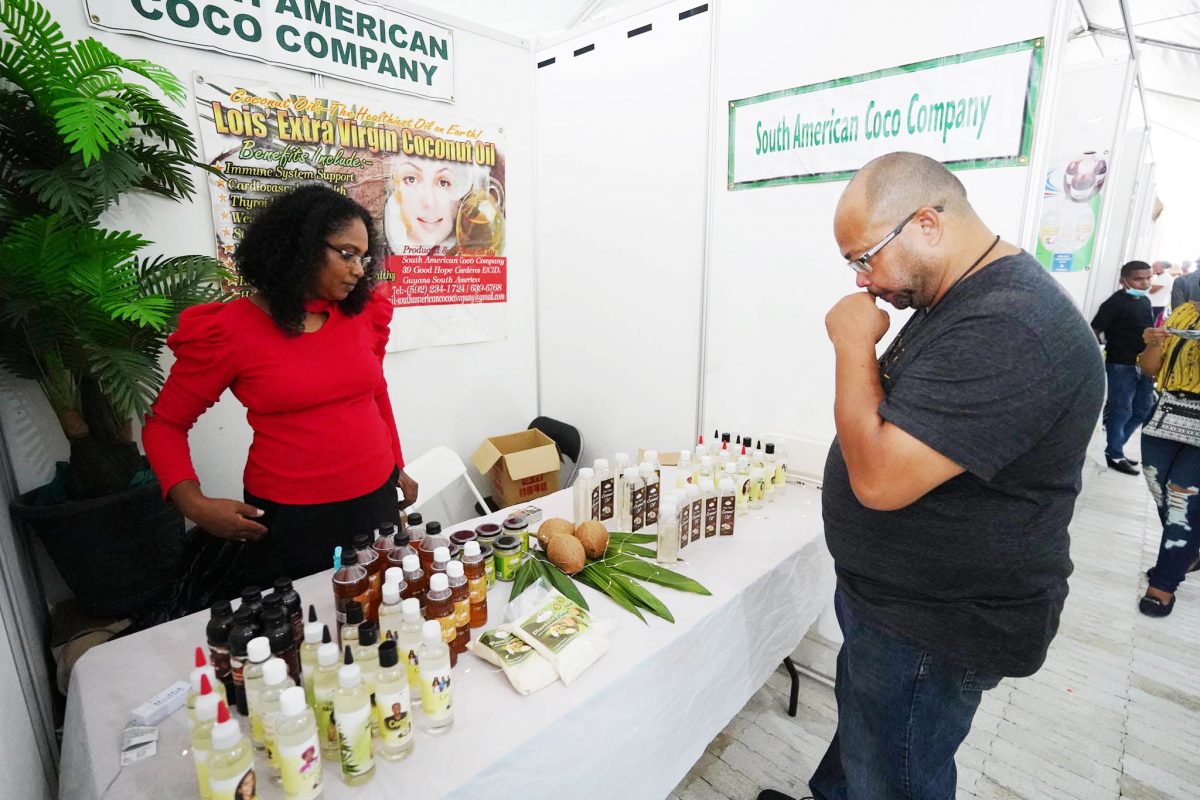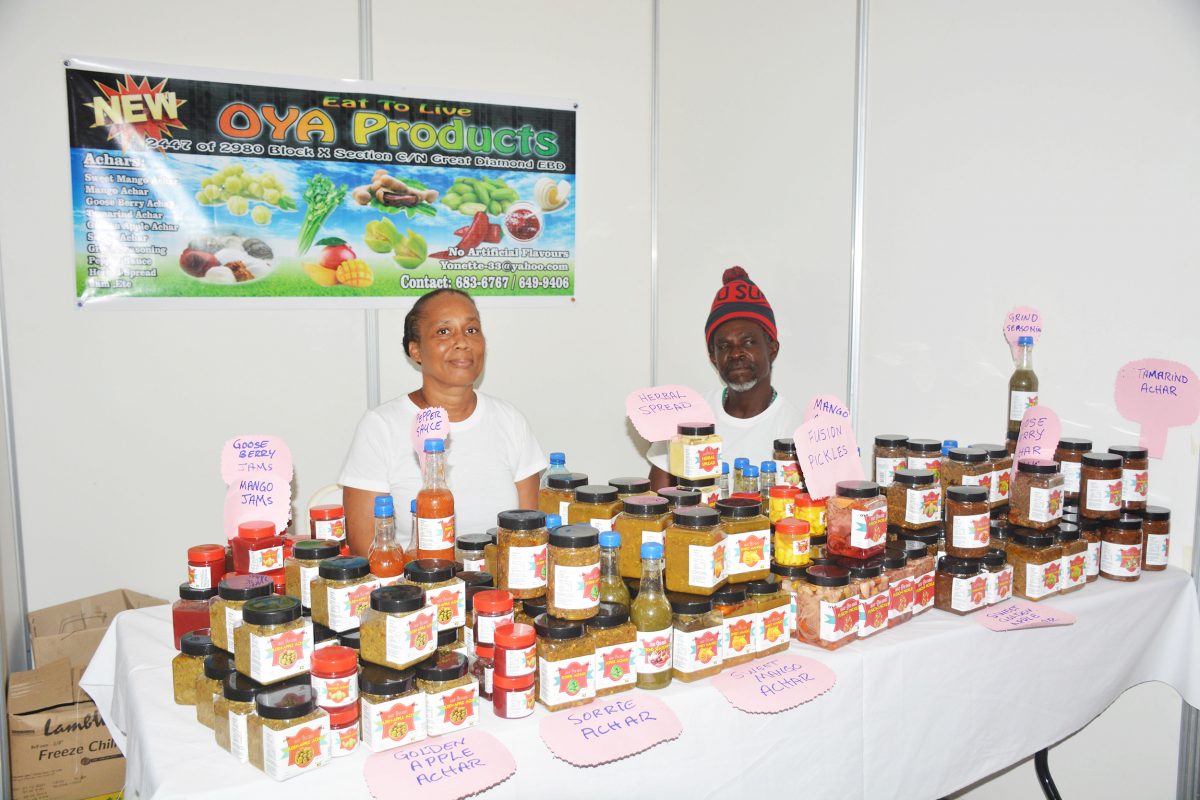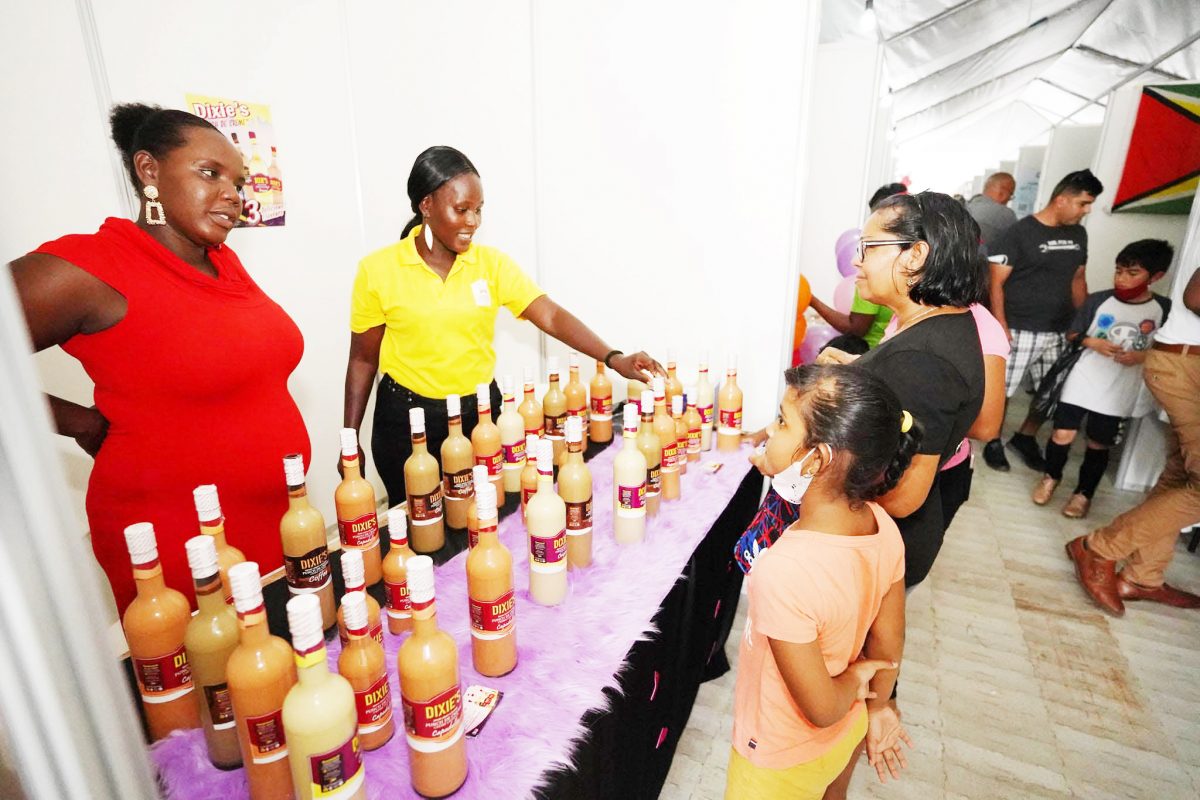An informal follow up conversation with a gathering of local agro-processors who participated in the recent Guyana Manufacturing & Services Association –staged UncappeD event at the Providence Stadium has yielded the opinion that the likely single biggest government failure up until now in terms of support for the growth of the country’s agro processing sector has been its inability, up until now, to provide a facility that will enable the country’s agro-processors to undertake “end-to-end” manufacture and packaging of their produce to a point of them leaving the facility with “ready for market” products.
Participants in the discourse noted that such a facility which they say is “long overdue”, had been the subject of discourses between the Guyana Manufacturing & Services Association (GMSA) arising out of fact-finding discourses between the GMSA and local agro processors.
The group of seven agro-processors who manufacture jams and jellies, food spices, and beverages, expressed the view that the establishment of such a facility, or perhaps several of these across coastal Guyana, in the first instance, would allow for reduced cost considerations and logistical hassle and would ‘free up’ agro-processors to focus on securing markets for their products.
The group which included agro-processors whose processing operations are still largely confined to their domestic kitchens, told the Stabroek Business that their “greatest disappointment” had to do with the fact that despite the efforts that small businesses had made to create “on their own, a thriving agro-processing sector,” government had, up until now, made “no real effort” to “make life easier” for agro-processors by creating a “one-stop processing facility.”
Much of the discourse between the Stabroek Business and the agro-processors revolved around the fact that there has not been, up until now, “any real official support” for agro-processors that would make their routines less onerous.
Contending that with more resources having come on stream as a result of the country’s oil &gas industry, government must begin to provide more “meaningful support” for the agro-processing industry by offering low- interest loans and in some instances, grants, for food preservation equipment including freezers and dehydrators, product distribution equipment including wrapping and palletizing systems, which acquisitions they said should be influenced by the form in which food material is being processed.
Contextually, the group agreed that considerations associated with agro-processors’ acquiring equipment should be handed over to a strengthened Small Business Bureau which they said should be removed from within the jurisdiction of the Ministry of Business.
The majority of Guyana’s agro-processing sector is confined to “domestic processing” pursuits which are dominated by small kitchen-based operators who often press what, frequently, are inadequate kitchen appliances into service as agro-processing tools. While few concerns were expressed over the quality-related shortcomings that inhere in the use of domestic kitchen tools for commercial agro-processing operations, concerns were, however, expressed over the fact that the inadequacy of such tools is reflected in the speed and efficiency of the production process and the time frames associated with volumes of product that can be manufactured utilising conventional kitchen tools.
While the group expressed concern over challenges associated with access to external markets, the participants agreed that access to external markets could not be isolated from weaknesses that had to do with volumes, product presentation and compliance with food safety rules that obtain in importing countries.
Over the years, official support for the agro-processing sector has been limited largely to government partial sponsorship for local agro-processing events that benefit from limited public support as well as modest subsidies for local producers participating in overseas product promotion events. While the launch of the state-run Small Business Bureau in 2013 had won a measure of public support, challenges associated with procedures for accessing the agency’s support, the decidedly modest amounts of loans and grants which, beneficiaries say are inadequate to support meaningful growth and expansion and the umbilical tie between the Bureau and the state through the Ministry of Business are constraints which many agro-processors say they want removed.
What is needed at this time, the group agreed, is the allocation of more significant sums of loans and grants to allow for the more rapid growth of the sector, more efficient linkages between agro-processes and the local farming community, the creation of state-of-the-art manufacturing facilities, and more official support for regional and international product promotion utilising in some instances some of the very mechanisms and procedures that are being used to ‘market’ Guyana’s credentials as an oil-producing country.








